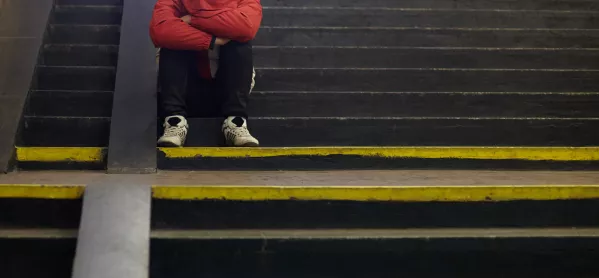Students from the poorest postcodes in England are almost twice as likely to fail maths or English GCSEs compared with their more advantaged peers, and are less likely to attain top grades, a new analysis by Teach First reveals.
Conducted using the Department for Education’s underlying key stage 4 results data for 2018, the analysis highlights an achievement gap in every subject of the EBacc between young people attending schools in England’s richest communities and those in the poorest.
Those attending schools in the most disadvantaged areas were much less likely to attain a pass grade in every subject and to achieve top grades, the analysis shows.
Related: Schools battle to raise attainment of the ‘forgotten third’
Insight: ‘We have an education policy vacuum - let’s fill it’
Quick-read: ‘Our children are so much more than grades’
Teach First says targeted support for schools and measures to attract talented teachers into the profession are needed to address the achievement gap uncovered by the investigation.
“We know that it is possible to alter the outcome for children in every area,” Teach First chief executive Russell Hobby said.
The GCSE disadvantage gap
“Because time and time again we’ve seen the transformational difference a brilliant education can make, helping all young people to thrive.
“But if we are to achieve this everywhere, the prime minister needs to not only hold true to his promise of more investment for schools - but he must also target it at those in areas of the greatest need.
“That also means urgently addressing teacher starting salaries, to help encourage more talented people into the profession, so they can use their skills and knowledge where it really matters.
*While 20 per cent and 22 per cent of pupils from more advantaged areas failed to pass maths or English language respectively, the percentage rose to 38 per cent for their more disadvantaged peers.
*For history and French, the percentage of those failing to attain a pass rose to 46 per cent and 41 per cent respectively for pupils in poorer areas, compared with 27 per cent and 26 per cent for pupils attending school in richer areas.
*In the sciences, 15 per cent of pupils from disadvantaged communities fell in the 1-3 and U grade bracket, while only 5 per cent of their more advantage peers didn’t achieve a pass grade in biology, 7 per cent in chemistry and 6 per cent in physics.
Those in more disadvantaged areas were also less likely to attain top grades, the analysis shows. Only 11 per cent of those pupils attained the top three grades in English language, 13 per cent in maths, 12 per cent in geography, and 15 per cent in French.
But their peers attending school in wealthier communities were almost twice as likely to attain top grades in the same subjects: 22 per cent in English language, 26 per cent in maths, 27 per cent in French.
“A child’s postcode should never determine how well they do at school, yet today we’ve found huge disparities based on just that,” Mr Hobby said.
“Low attainment at GCSE is a real cause for concern, as it can shut doors to future success and holds young people back from meeting their aspirations.”
Sir Kevan Collins, chief executive of the Education Endowment Foundation, said: “Closing the attainment gap between poorer pupils and their classmates is our best shot at improving social mobility.
“So it is disappointing to see that disadvantaged pupils are almost twice as likely to leave formal education without good grades in English and maths. Prospects for this group are bleak.
“We know the attainment gap is not inevitable - in almost one in 10 secondary schools disadvantaged pupils’ outcomes exceed the national average for all pupils - so it is possible to make important headway in boosting outcomes for the poorest students. Every extra grade gained can make an important difference to a young person’s future.”
A Department for Education spokesperson said: “The gap between disadvantaged pupils and their peers has narrowed considerably since 2011, and 85 per cent of children are now in ‘good’ or ‘outstanding’ schools compared to just 66 per cent in 2010.
“And our £2.4 billion Pupil Premium is helping the most disadvantaged children. But we must do more.
“The prime minister has committed to increasing school funding so we can level up all parts of the UK and close the opportunity gap.
“We will continue to drive up school standards right across the country, and do more to continue to attract and retain talented individuals in our classrooms as well as giving teachers the powers they need to deal with bad behaviour and bullying.”

